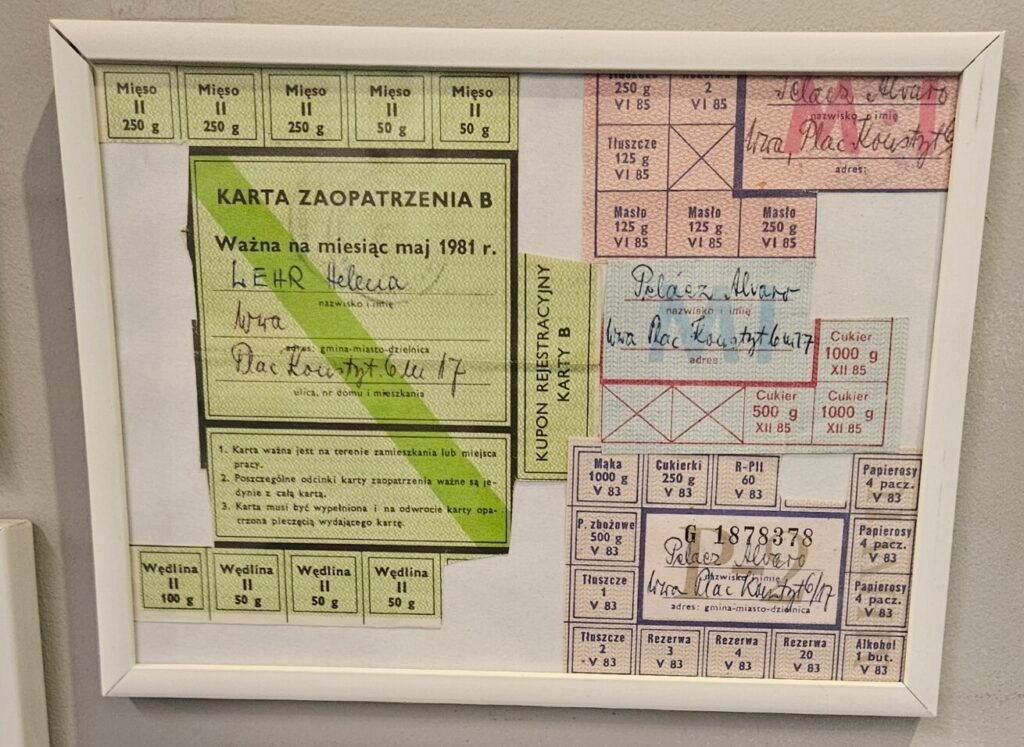I was always intrigued by life under Communism. After recently picking up George Orwell’s 1984, I figured I’d revisit the topic. So I spent the last few weeks reading articles and nagging my family to share their experiences.
The Berlin Wall had fallen a few months before I was born, marking the beginning of the end of Soviet oppression in Poland and many other European countries. Although I did not witness it first hand, my parents and siblings combined experienced it from inception to its end.
The Polish People’s Republic
The Polish People’s Republic (PPR) or Polska Rzeczpospolita Ludowa (PRL), as Poland was called during the Communist state, existed for over four decades. During this time, the state of the nation varied as leadership changed periodically.
After the end of WWII, the Soviets relished in full control over the country. They exerted their power in ways that included:
Mom often reminisces about her beloved middle school history teacher. A member of the Home Army, the man’s principles did not align with that of the Soviets.
“It was all a little different, but…I can’t,” Mom recalled him saying during a lesson. He risked severe penalty for teaching anything that was not ordained by the state.
After Stalin’s death in 1953, several nations began to seek liberal reforms. Growing protests in Poland led to new leadership under Władysław Gomułka who initially helped soften the Soviet impact on the nation. Repressions decreased and freedom of speech increased, for example. Unfortunately, as time went on, Gomulka’s leadership became more authoritarian, and the country began experiencing economic hardship and social unrest.
1970’s and 80’s
Additional reforms came in the 70’s, with the ousting of Gomułka and Edward Gierek assuming leadership. Gierek aimed to “modernize” Poland. Yet, as with his predecessor, Gierek brought only temporary relief to the country, obtaining loans from foreign nations to support the economy. Unfortunately, this resulted in a severe economic crisis and near-bankruptcy.
My siblings were born in the early- to mid-70’s, so I’m lucky to hear their stories from this time period. My sister recalls a popular saying at the time, “Chcesz cukierka, idź do Gierka / Gierek ma, to ci da”, a tongue-in-cheek rhyme about how if you want candy (a rare delight at the time), all you had to do was go and ask the guy ruling the country.
Unfortunately, it wasn’t that easy (ha). Shortages of goods resulted in the following:

The term spod lady, or “under the counter”, became common during these times, as store clerks would illegally hide certain items under the counter to sell to various connections.
One of my favorite cultural moments commemorating this period in Polish history is the song “Psalm stojących w kolejce“, or “The psalm of those in the queue“.
The piece was written in 1978 by Ernest Bryll, who intended to publish it as a poem. When the author sent it to a Warsaw literary magazine, he was told the piece inaccurately reflected reality, as no one was standing in queues and the economy was, in fact, prospering.
Luckily for the Polish public, friends of Bryll’s, director Krzysztof Bukowski and composer Wojciech Trzciński, discovered Bryll’s work and convinced him to collaborate with them on a play. The duo was attempting to portray “life as is” in Poland, and found Bryll’s piece very fitting.
Taking a huge risk, the creators did not send it in for review by the Central Office. In turn, the play was not censored and, premiering in December of 1980, deemed a success. Bryll’s Psalm, sung by Krystyna Prońko, became a symbol of Solidarity.
Solidarity and martial law
Protests broke out in response to the worsening state of the nation. In 1980, a large strike of shipyard workers in Gdańsk resulted in the creation of the Solidarity trade union, with future president Lech Wałęsa at the helm. Seeking to democratize the nation, Solidarity was successful in decentralizing power and was key in ending communist rule in Poland. But not immediately.
Recognizing Solidarity as a threat, the nation’s leaders introduced martial law on December 13, 1981.
My parents, like most Polish people alive at the time, remember the broadcast by Secretary General Wojciech Jaruzelski.
Citizens of the Polish People’s Republic!
I address you today as a soldier and as head of the Polish government. I address you on matters of the utmost importance. Our homeland is on the brink of an abyss. The achievements of many generations, the Polish home built from the ashes, are falling into ruin….The burden of responsibility that falls upon me at this dramatic moment in Polish history is great. It is my duty to assume this responsibility – it concerns the future of Poland, for which my generation fought on all fronts of the war and to which it devoted the best years of its lives. I announce that today the Military Council of National Salvation has been constituted. The Council of State, in accordance with the provisions of the Constitution, has imposed martial law throughout the country at midnight today.
Translated excerpt from Wojciech Jaruzelski’s televised address to the Polish nation, December 13, 1981
Poland under martial law was marked by curfew (or “militia hour”), tanks patrolling the streets, increased censorship and shortages, and imprisonment of protesters. It was lauded by the East for suppressing Solidarity, and criticized heavily by the West (as well as the Polish Pope John Paul II) for it’s suppression of human rights.
My family did not feel the brunt of military rule, as they lived in a rural area and the impact was more pronounced in cities. There were still patrols and curfews, but the individuals most at risk were those in significant positions or participating in large protests.
The revival of Solidarity and the end of the PPR
After martial law was lifted in July of 1983, the Solidarity movement–which has largely moved underground–slowly re-emerged. As the economy worsened, protests resumed.
In response to various factors, including growing pressures from the Catholic Church and shifting politics in the USSR, the government initiated conversations, known as Polish Roundtable Talks, with Solidarity. The Talks, resulting in the presidential election of 1990, led to the end of the PPR.
Further reading
- Bartkowski, Maciej. 2009. “Poland’s Solidarity Movement (1980-1989)” https://www.nonviolent-conflict.org/polands-solidarity-movement-1980-1989/
- Knoll, Paul W. 2023. “Poland Imposes Martial Law and Bans Solidarity” https://www.ebsco.com/research-starters/law/poland-imposes-martial-law-and-bans-solidarity


